‘Marriage for all’ brings hope for rainbow families
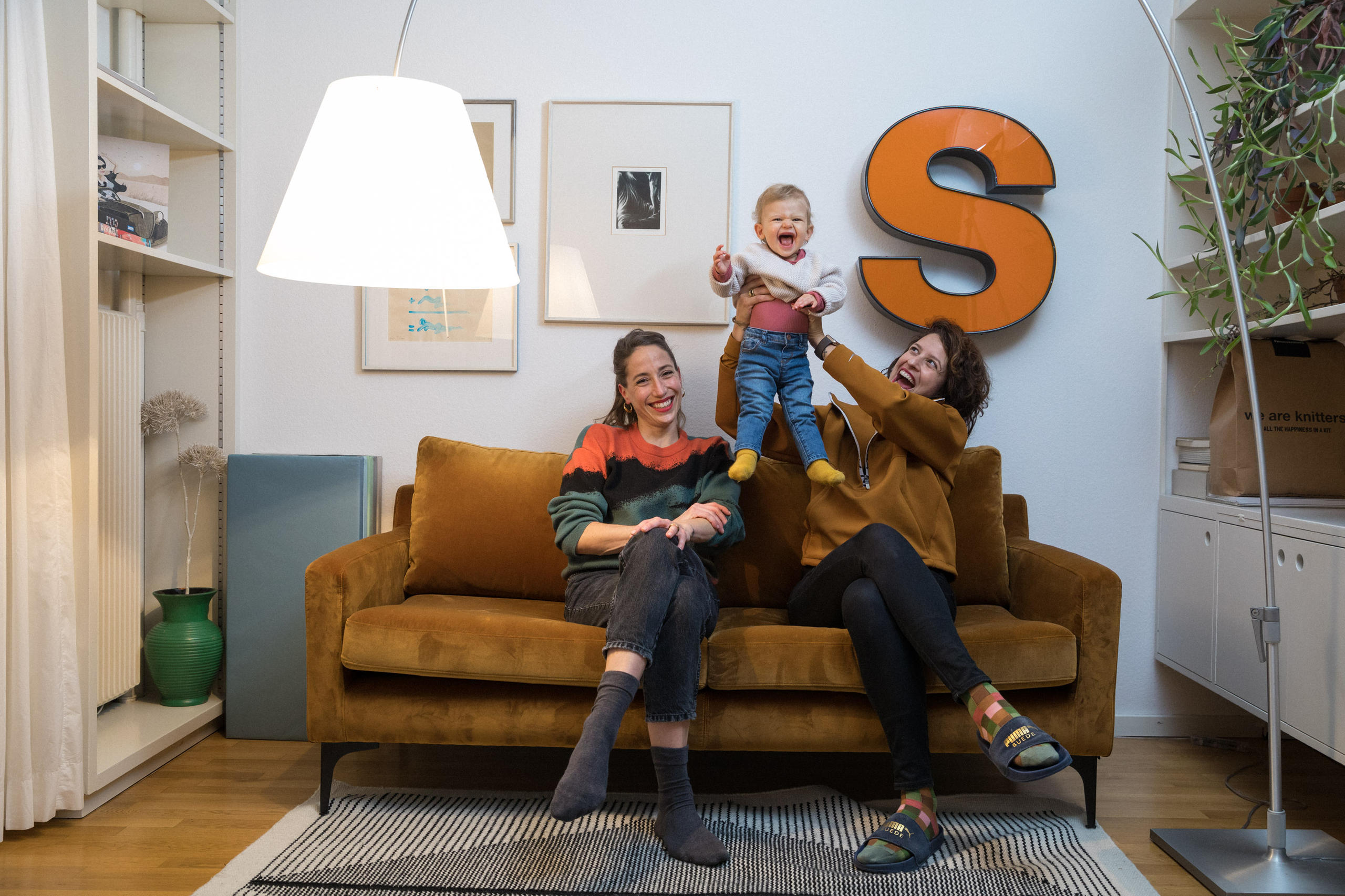
Travel abroad to conceive a child, laborious adoption procedures, and legal insecurities are some of the obstacles facing Switzerland’s rainbow families. But they hope parliament’s recent move to allow “marriage for all” will make their lives easier.
“Sarah can finally officially be my wife. It is more romantic than calling her my registered partner,” says Simona Liechti. An infectious smile lights up her face as she comments on the Swiss parliament’s recent decision to allow same sex marriage.
That said, the 37-year-old lawyer nonetheless laments Switzerland’s lateness in allowing same sex couples to marry. Most west European countries authorised marriage for all several years ago.
A popular vote will probably take place due to the launch of a referendum (see box), But the possibility of being able to marry is not just a symbolic gesture for same sex couples, it should also give rainbow families stronger legal protections.
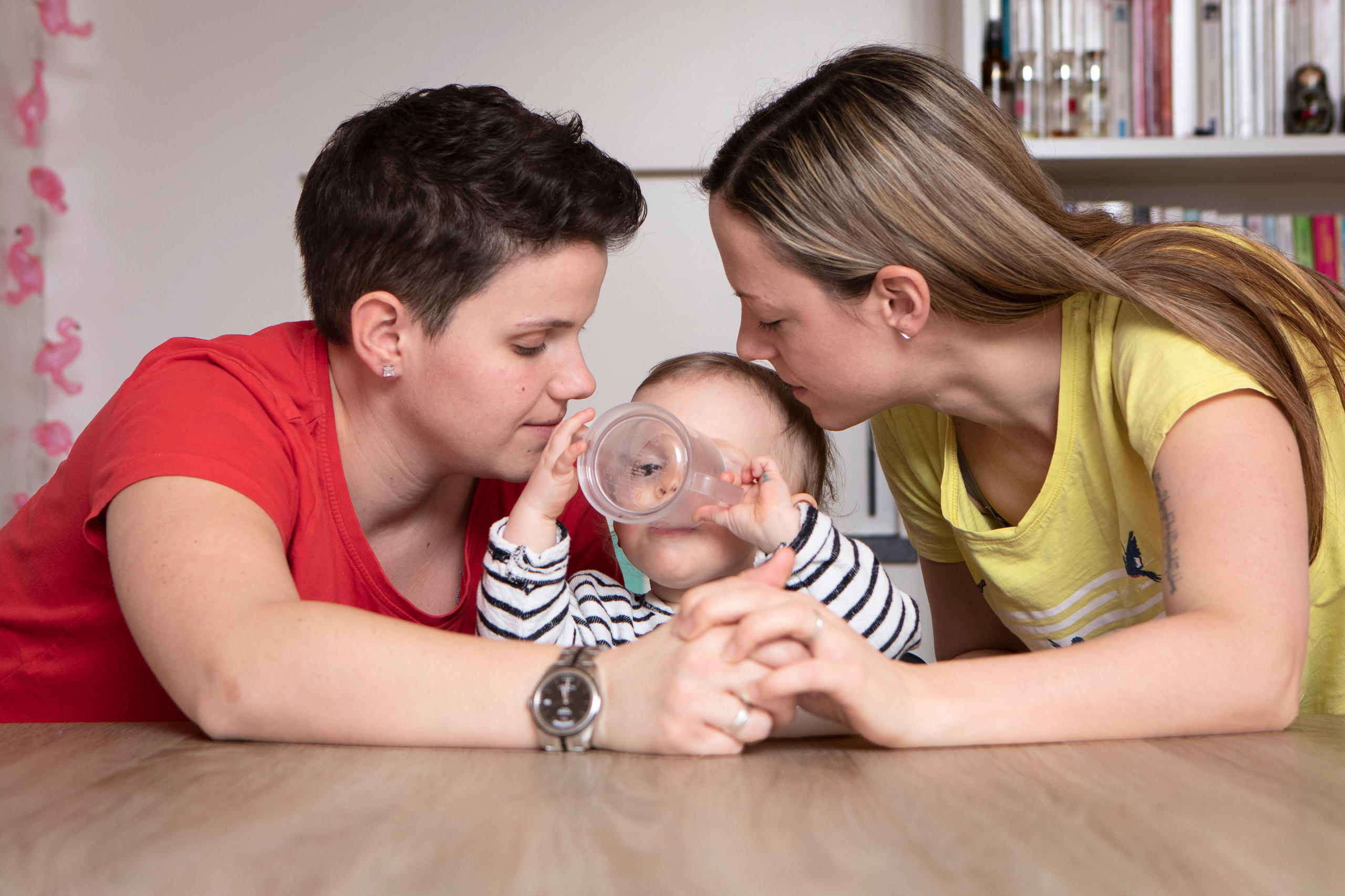
More
Fight for marriage equality in Switzerland continues
Copenhagen sperm bank
Since 2016, Simona and Sarah Liechti have been in a registered partnership, a type of union in Switzerland reserved for homosexual couples. But the contract does not give them access to assisted reproduction, so when the two women decided to have a child, they approached a sperm bank in Copenhagen.
“Denmark authorised access to assisted reproduction for lesbians a long time ago. Their legislation also gives our daughter the possibility of knowing the identity of the sperm donor when she turns 18. That advantage was decisive for us,” explains Simona Liechti.
It took several trips to the Danish capital, carefully planned to coincide with the couple’s holidays, before Simona Liechti became pregnant.
“If we could have done it in Switzerland, in a familiar environment, we would have been more at ease. The process is an emotional one in itself and the fact of having to go abroad increases the stress,” the two women say. Added to that is the strange sensation triggered by having to go to another country to do something one is not authorised to do at home.
“Even if it’s not illegal, the experience leaves a bitter aftertaste,” comments Sarah Liechti.
Travel and accommodation also increase the already high cost of assisted reproduction. Simona Liechti estimates the total cost, including the clinic, hormones, sperm donation and travel, at around CHF10,000 ($11,000).
“Some same sex couples probably have to give up their dream of having a child because they don’t have the means,” her partner comments.
This couple, a teacher and lawyer from Bern, were able to afford it.
Two groups opposed to marriage for all want a referendum to oppose the Swiss parliament’s decision. The Federal Democratic Union (FDU) of Switzerland, a small ultra conservative Christian party, has already announced it wants to organise a referendum. Politicians from the People’s Party and the Christian Democratic Party have formed a second committee which will also launch a signature collection against revising the marriage law. The Christian Democratic Party says it wants to concentrate on the “access to assisted reproduction” aspect.
Lack of protection for children
Under the tender gaze of her two mothers, Ambra is in heaven. Sitting on her play rug, she plays with an electronic watch that she has managed to get hold of. It is of no importance to the little girl that both her parents are women, but that is not the case in the eyes of the law: Ambra does not have the same protections as the children of married heterosexuals.
“Legally, she is my daughter only. If something happens to me, she is considered an orphan under Swiss law,” says Simona Liechti.
Despite this ambiguity, the lawyer knows that in the case of her death, her daughter will probably be authorised to live with her partner.
“There is nonetheless some uncertainty. We will only feel completely at ease when Ambra has two mothers from a legal point of view,” she says.
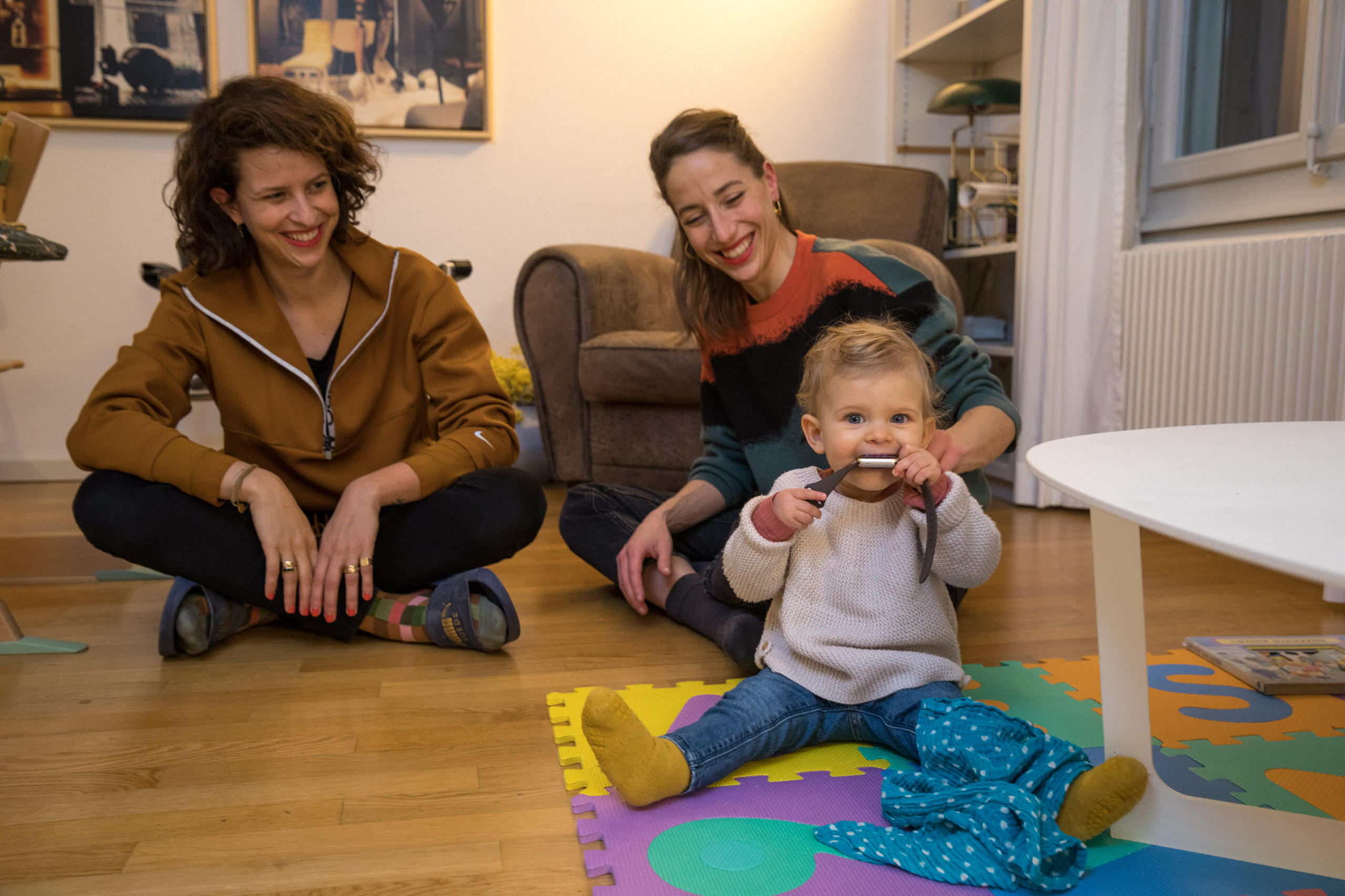
For Sarah Liechti to officially become the second mother of the little girl she is raising with her partner, the path remains fraught. She had to wait until Ambra had celebrated her first birthday, on December 25 last year, before she could start adoption proceedings. This process is long, arduous, and bureaucratic.
“I have, for example, to explain the relationship that I have with my daughter, which is absurd,” comments Sarah Liechti.
When marriage for all becomes a reality in Switzerland, lesbian couples will have access to assisted reproduction. This means they will not have to travel abroad or go through lengthy adoption procedures because the two partners will be automatically recognised as parents upon the birth of the child. Those who opt for a foreign solution will still have to go through the adoption process, a point criticised by LGBTQI activist groups.
Behind the times
Swiss law seems to lag behind social reality; experts estimate around 30,000 children are growing up within rainbow families, in which at least one parent identifies as gay, lesbian, bisexual, or transgender. Attitudes also seem to have evolved faster than the legislation.
“A lot of people are not even aware that we don’t have the right to marry,” comments Simona Liechti.
The Liechti family has not met hostility or discrimination since Ambra’s birth. At most there has been a bit of awkwardness.
“During Ambra’s first doctor’s appointment, the paediatrician asked if I was her aunt,” laughs Sarah Liechti.
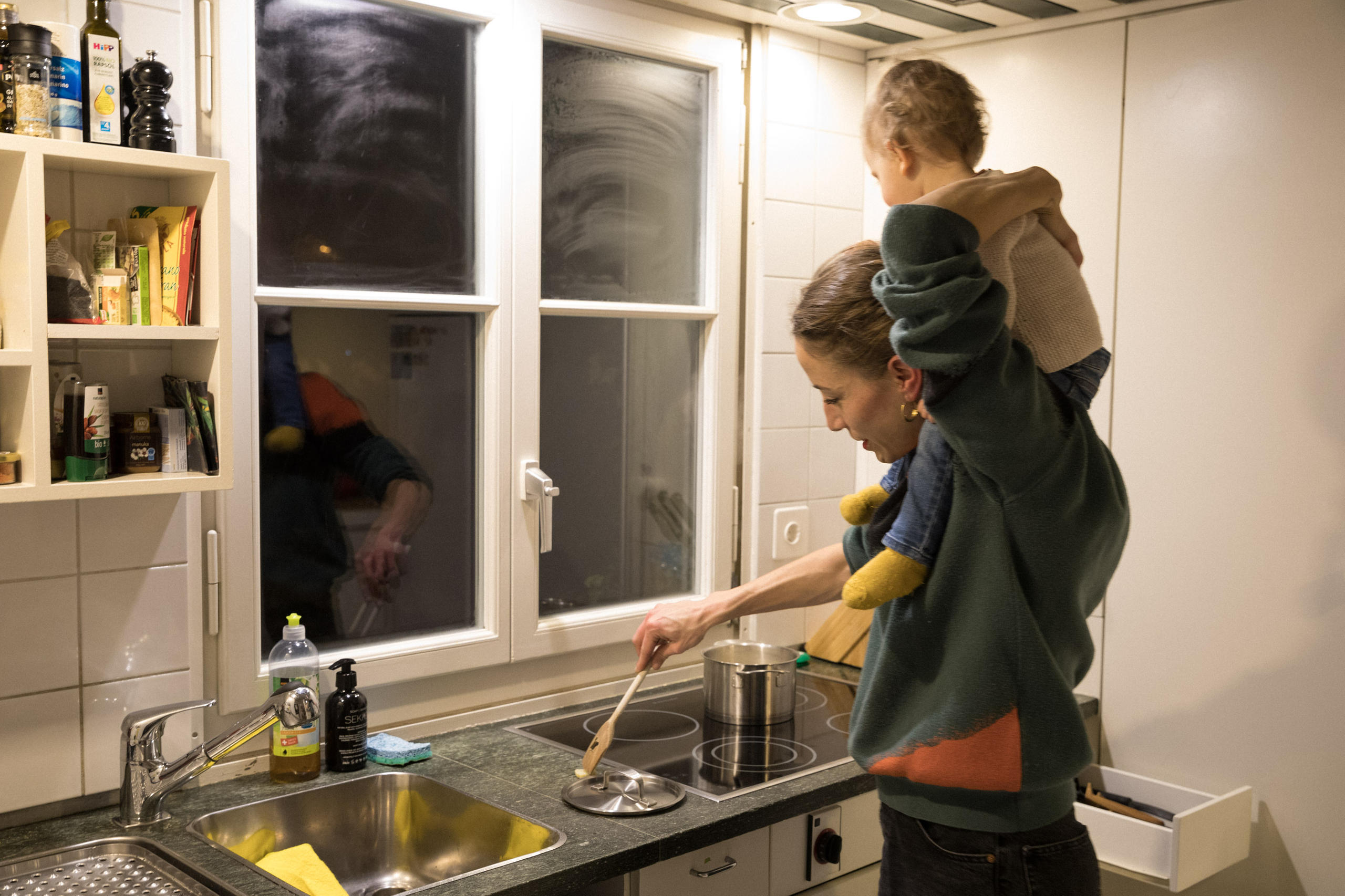
While Simona and Sarah Liechti are able to freely live their love and their lives as mothers, they think Switzerland still has much progress to make in terms of rights for LGBTQI people.
“The situation for transgender people is even more difficult. With trans identity, I have the impression society is still at the stage it was 15 years ago with homosexuality,” comments Sarah Liechti.
“I hope people are not going to continually ask her where her father is,” she says, hugging her daughter. Far from the preoccupations of adults, Ambra bursts out laughing. She now has a trace of lipstick on her cheek.
“In the end, having two mothers simply doubles the risk of having a lipstick mark,” jokes Sarah Liechti.

More
Rainbow families start to colour Swiss media

In compliance with the JTI standards
More: SWI swissinfo.ch certified by the Journalism Trust Initiative









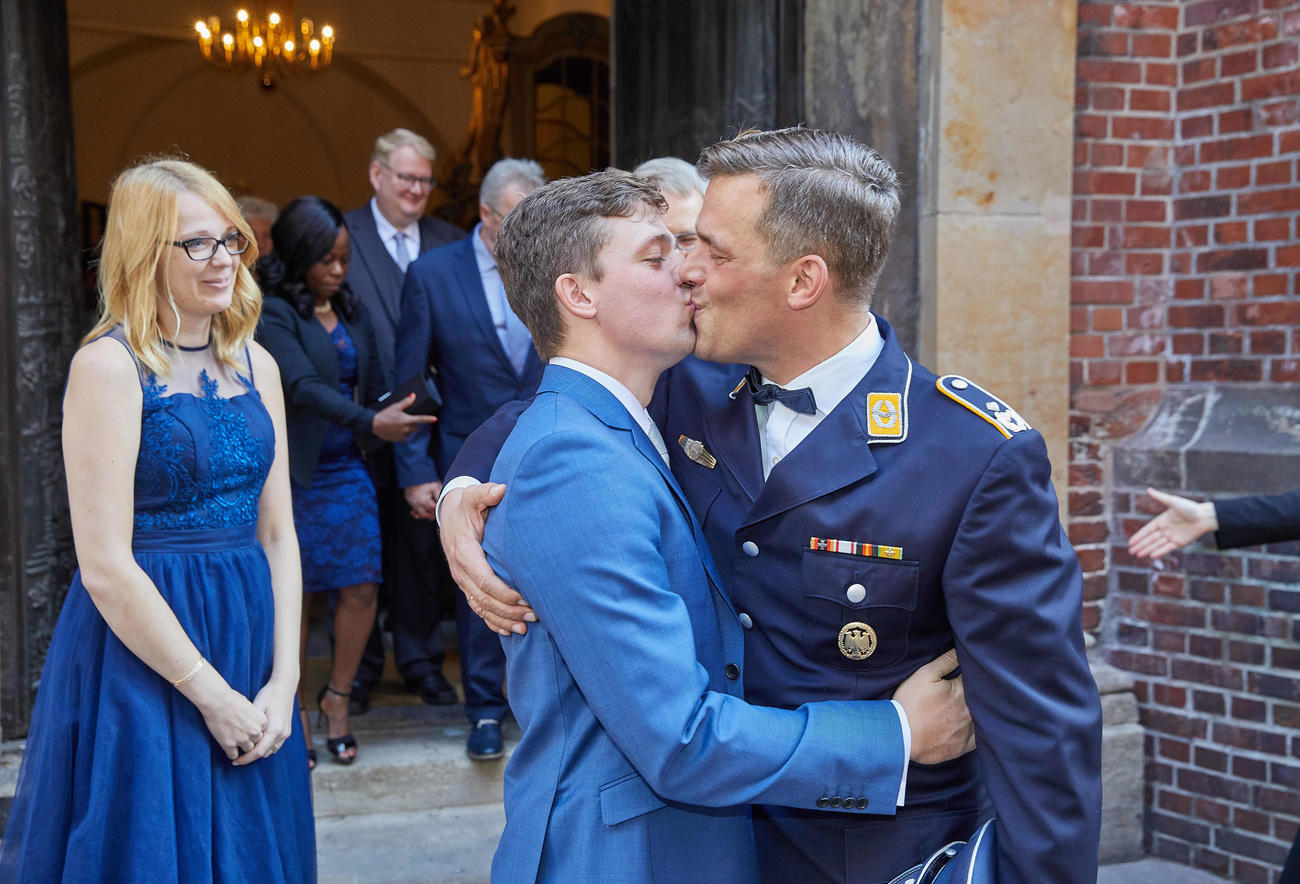

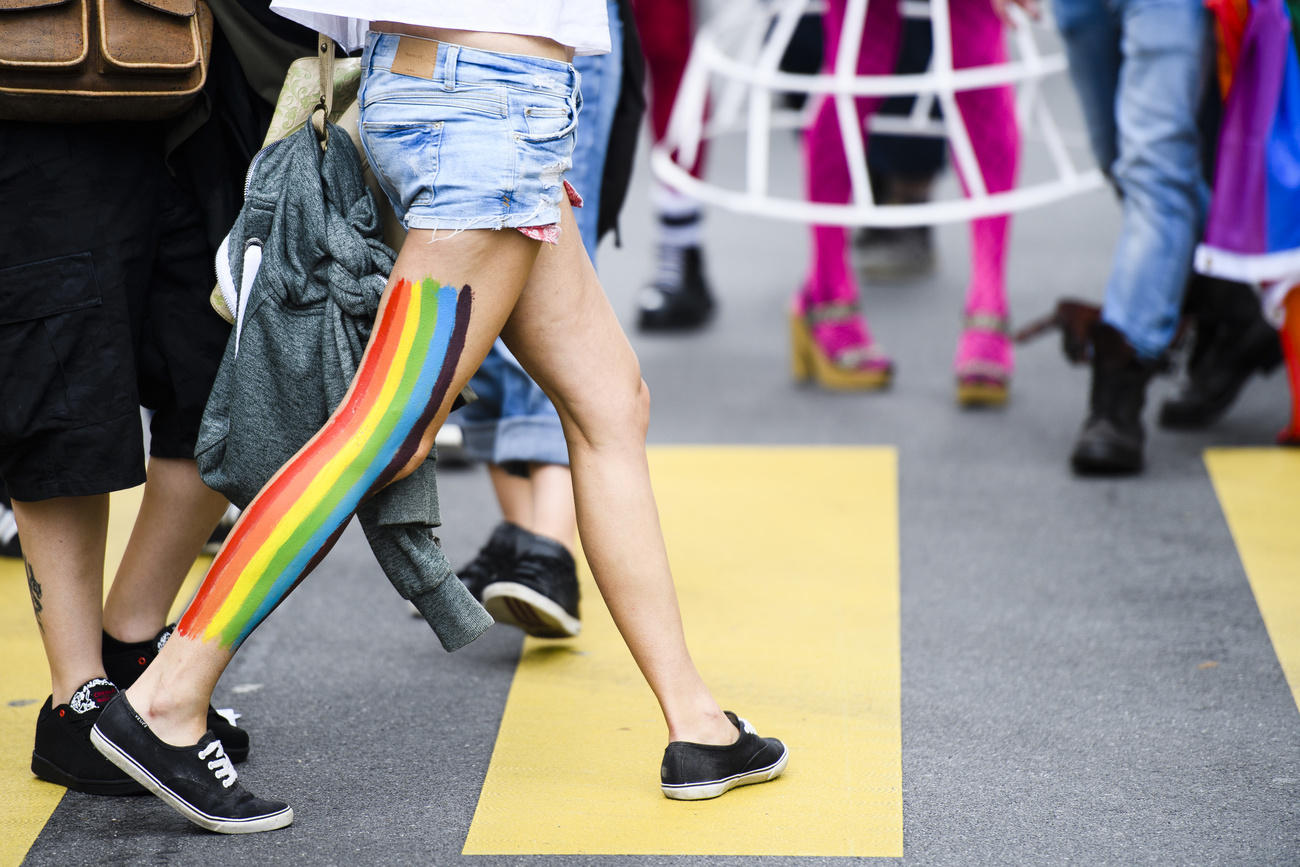
Join the conversation!